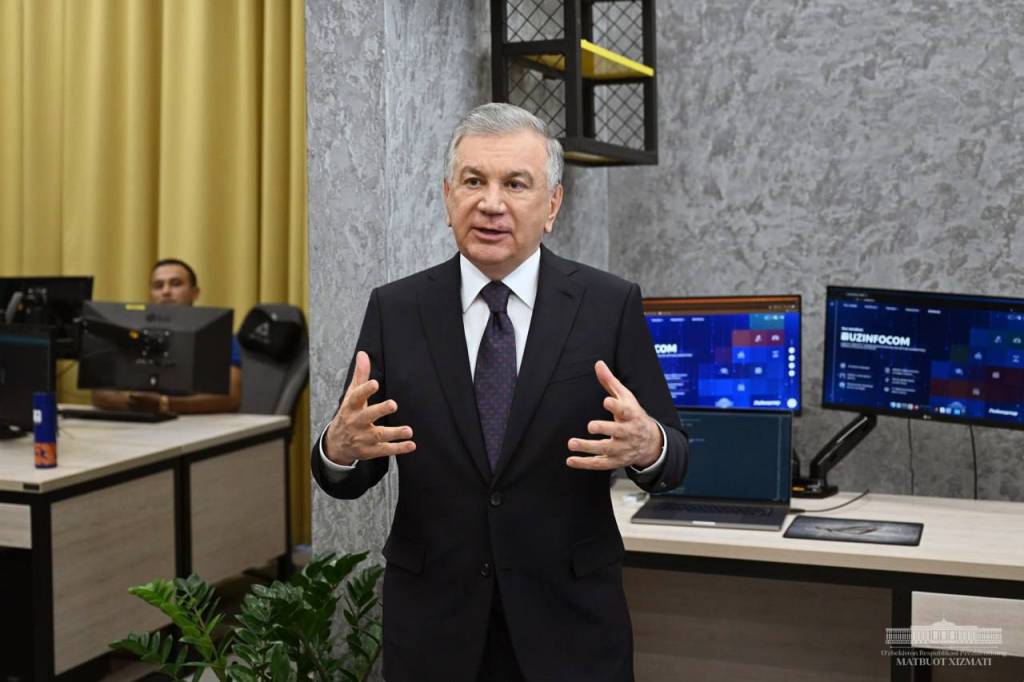
On December 20, President Shavkat Mirziyoyev visited the Ministry of Digital Technologies.
The Centre for Digital Governance hosted a presentation on the work carried out in accordance with the Uzbekistan-2030 Strategy, which sets the goal of transforming the country into a regional IT hub. This depends on many factors, such as digitalizing public administration and industries, improving communication infrastructure, and developing IT education.
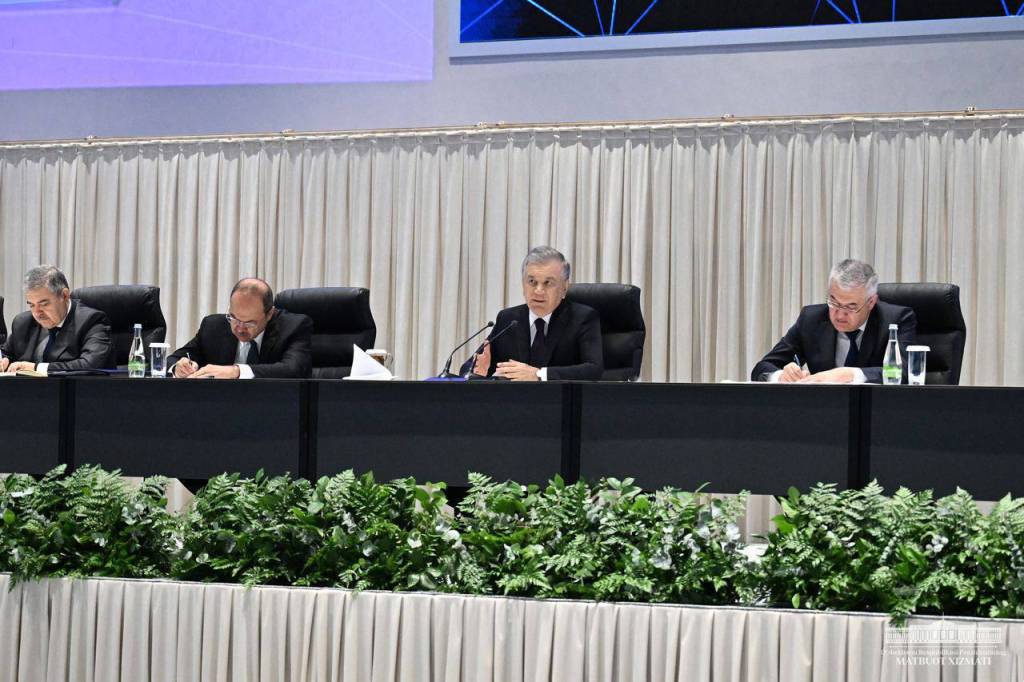
In recent years, significant changes have occurred in these areas. As a result of the creation of conditions and benefits for companies in information technology, the number of such enterprises and jobs is growing, and the export of services is increasing. In particular, in 2017, the number of IT companies in the country was 147. Now, it has reached 1600. The number of jobs also increased 10 times in a short time and exceeded 24 thousand. Industry exports, which amounted to $600 thousand in 2017, are expected to exceed $300 million by the end of this year.
Today, more than 8 million citizens use 570 online services through a portal, my.gov.uz.
Document flow in government bodies through a unified system of executive discipline – ijro.gov.uz amounted to 28 million documents.
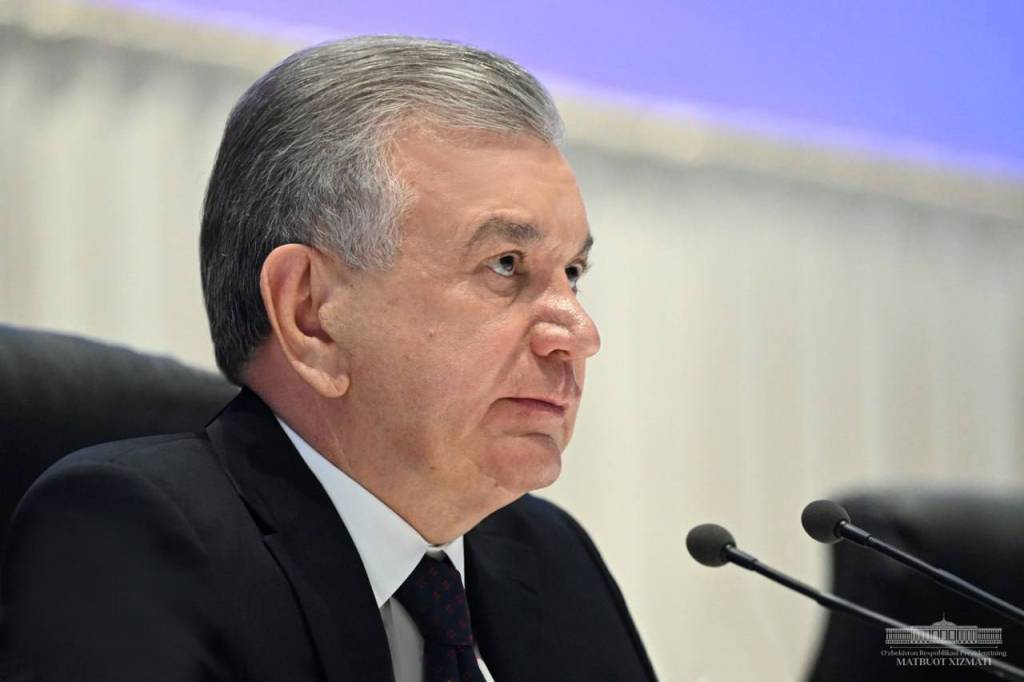
The President noted that this system has radically changed the responsibility and approach of managers to work and gave instructions on expanding the integration and quality of document flow, strengthening it through control over performance discipline.
In 2022, Uzbekistan rose 18 positions and took 69th place in the UN e-government ranking. Annual measures have been developed to enter the top 30 of this rating by 2030.
Also, the Uzbekistan-2030 Strategy sets a goal to increase the volume of IT services and software product exports to $5 billion. For this purpose, many measures are envisaged, such as developing IT infrastructure and the venture capital market in the regions, stimulating the export of domestic enterprises on the “local to global” principle, and opening offices of international companies in Uzbekistan. Proposals were discussed to avoid double taxation, introduce English law on the IT Park territory, extend residents’ tax benefits until 2040, and generally create favorable conditions for industry development for the next 100 years.
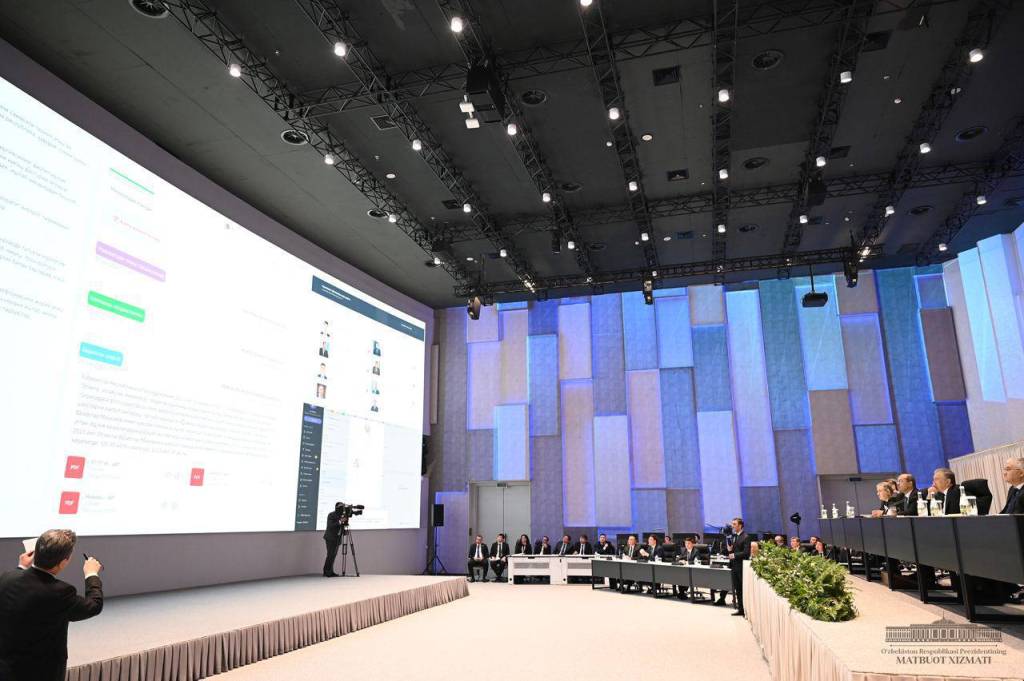
The Head of state gave instructions on promoting a unified image of the country, including information technology, tourism, and investment potential.
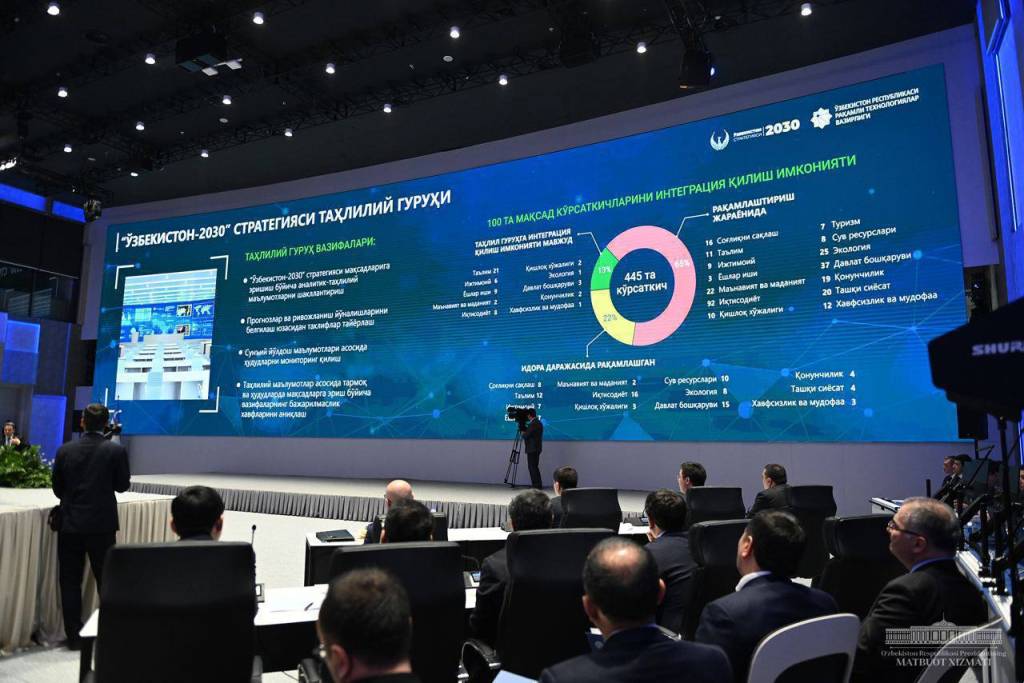
The presentation also provides information on the development of specialized education. Over the past 3 years, IT training centers have grown to more than 300. The number of young people who have completed training and received a certificate as part of the “One Million Uzbek Coders” project has amounted to 1.2 million. Since last year, compensation of up to 50 percent of the cost of training for obtaining international IT certificates has been introduced. 215 thousand young people completed international online courses and received certificates.
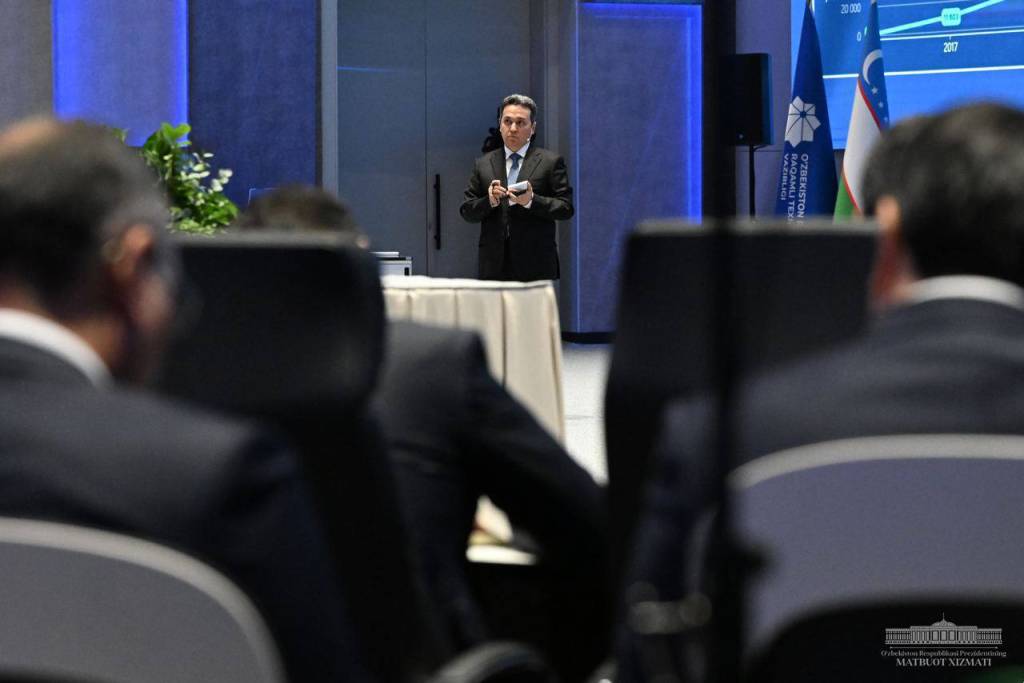
In continuation of this work, a system of annual selection, education, and training for the international labor market of 5 thousand talented young people will be introduced starting next year. Training will begin in Khorezm region within the framework of the “Successors of Al-Khwarizmi” project. In general, it is planned to train and employ 300 thousand young people in the field based on programs that meet the standards of international companies.
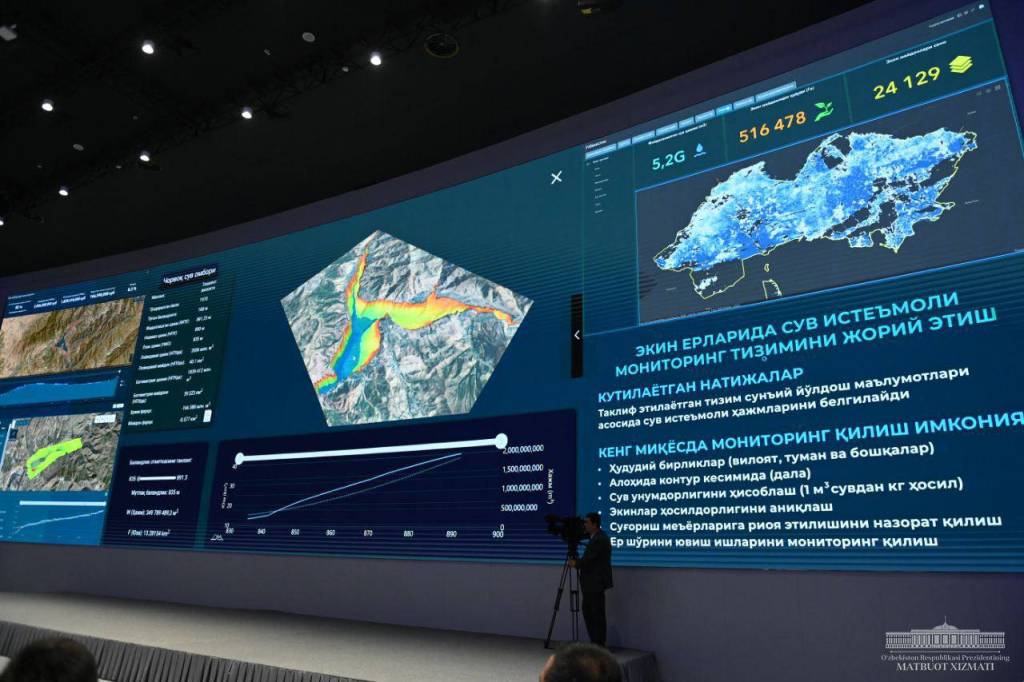
Here, the responsible persons reported on the program for monitoring the use of reservoirs and subsoil based on space geodata.
The President got acquainted with the conditions created in the office of the Unified Integrator of the Ministry – Uzinfocom and talked with specialists.

“You are our most reliable support in the current reforms. In the future, the need for professionals like you will only grow. The country will not develop if every industry and region does not keep up with digital technologies”, Shavkat Mirziyoyev said.
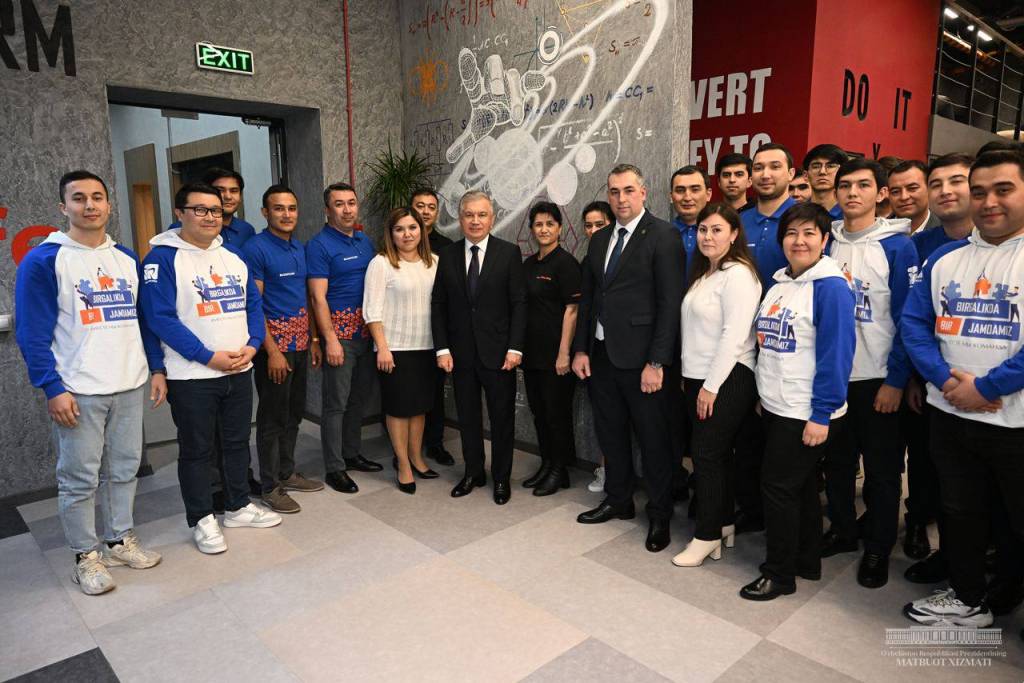
Information was presented on projects for biometric identification based on artificial intelligence, digitalization of the healthcare sector, and electricity billing. The Head of state emphasized the need to improve the digital activities of social spheres, especially healthcare.
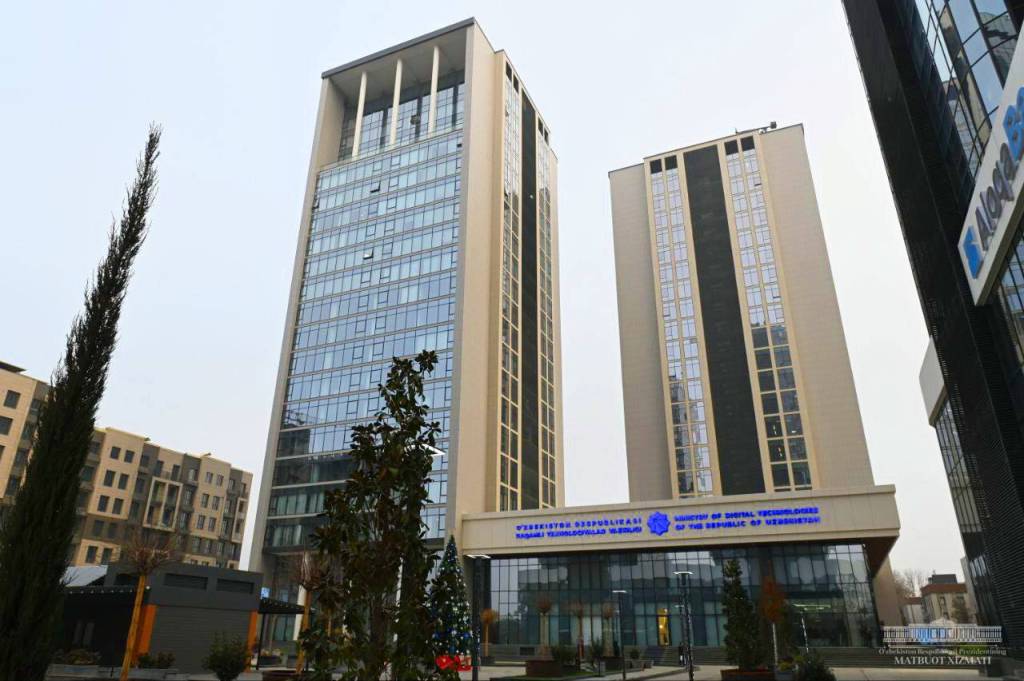
The President was informed about the IT Village, built in Nurabad district of Samarkand region. This complex aims to involve schoolchildren in grades 1-9 in information technology and teach them basic IT skills.
The Head of state ordered the creation of similar complexes in all regions.
UzA








